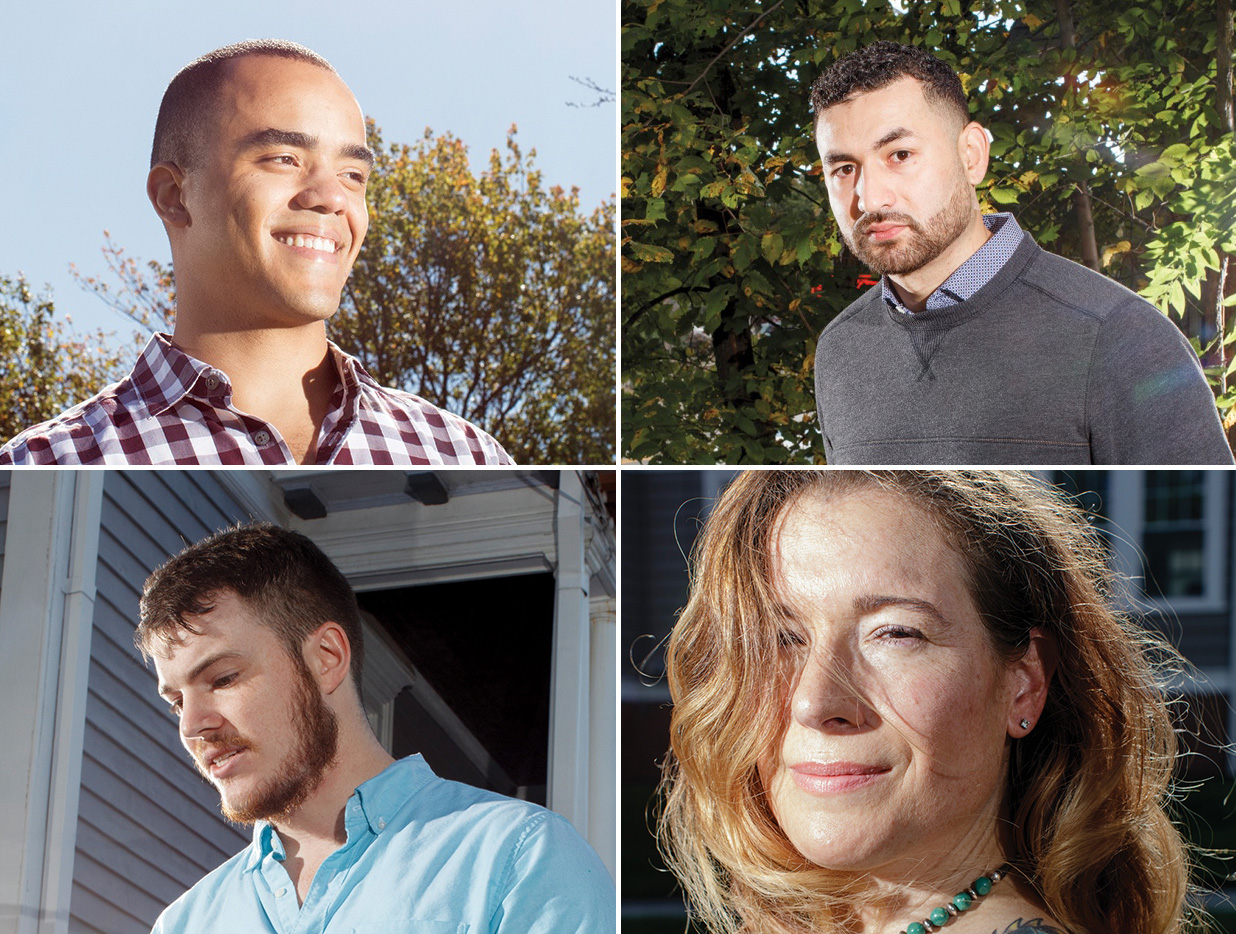PROVIDENCE, R.I. [Brown University] — A crowd of more than 100 Brunonians and members of the surrounding community gathered on College Hill under a cloudless sky on Monday, Nov. 12, to honor all veterans — living and dead, young and old, local and far afield.
Brown University’s Veterans Day ceremony, an annual event, fell this year a day after the 100th anniversary of Armistice Day, when World War I came to a close. Standing at a podium near Soldiers Arch — erected in memory of the 42 Brown students, alumni and faculty who lost their lives in that war — several of the day’s speakers alluded to the centenary, recalling President Woodrow Wilson’s 1919 proclamation of Nov. 11 as Armistice Day and reciting the wartime poetry of World War I physician-lieutenant John McCrae.
But while the past didn’t go unrecognized, the ceremony’s primary focus was on the veterans of today — their sacrifices, their unique perspectives and their contributions to the world of academia and to Brown.
“Today, you are amongst many veterans that have vastly different life experiences, even from one another,” said Alexandrea Pimentel, a Brown senior and former U.S. Navy intelligence analyst. “So in honor of Veterans Day, I encourage you all to ask a veteran why they chose to join the military.”
She asked audience members to ponder what came to mind when they heard the word “veteran” — and implored everyone to engage a veteran in conversation in an effort to bridge the military-civilian divide.
Pimentel, who will graduate in the spring with a dual degree in geological science and visual art, is one of 17 current veteran undergraduates at Brown. The University’s undergraduate veteran presence, noted Brown President Christina Paxson in her remarks at the event, is small but steadily growing, thanks in part to outreach efforts by the Office of Student Veterans and Commissioning Programs and the newly-formed Veterans Alumni Council.
“Our commitment is ongoing,” Paxson said. “It’s a commitment not only to honor our veterans on one day but to understand their unique experiences and embrace them as members of the Brown family all the time, every day.”
Student veterans, she said, enrich the campus by bringing with them distinctive perspectives and unusual skillsets. Junior undergraduate Ethan Fecht, for example, brought his skills as a former Navy intelligence analyst to a recent summer internship where he examined more than 850,000 tweets in an effort to help the public identify trolls and bots on social media. And Jonathan Hagedorn, a senior and former Marine, has leveraged his newfound theater education to address post-traumatic stress disorder through storytelling.
Paxson emphasized that, though the backgrounds of veterans may differ from those of other Brown students, their service complements and bolsters Brown’s mission.
“We often talk at Brown about freedom — freedom to learn, freedom to advance new ideas, freedom to practice our faiths and our politics as we choose, freedom to live in peace,” she said. “And it’s for these core freedoms that our veterans serve.”
At the ceremony, audience members also witnessed and celebrated two Brown students’ oaths to commit to joining the Army Reserve Officers’ Training Corps. Anna Deitcher and Brandon Sohn, both first-year students, will participate in ROTC training at Rhode Island College while they are students at Brown and will eventually become Army officers.
Among this year’s Veterans Day events was also a panel discussion titled “Veterans, College Hill and Beyond” with U.S. Sen. Jack Reed of Rhode Island, who reminisced about his years of schooling at West Point and his Army service.
“The Army was remarkably fulfilling to me,” he said. “Getting up every morning and doing something for my country was an incredible thing to be able to do.”
Throughout the panel, hosted by the Brown University Veterans Alumni Council and moderated by Class of 1975 graduate and former Marine colonel Ben Cassidy, Reed and audience members alike touted the military’s unique ability to unite people of disparate backgrounds — something that benefits the greater public when those who have served leave the military.
“People in the military will have a good sense of rapport and can put aside self-interest in the interest of coming together,” Reed said. “They appreciate the differences we have as Americans — whether ethnic, geographic or otherwise — and they look past that and say, ‘We can, and we must, work together.’”
